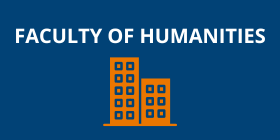Professor Nelson Paulus, moderates the webinar that recalls the 100 years of Max Weber's Economy and Society, in a conversation that included the participation of Dr. Jorge Gibert, Dr. Juan Ignacio Jiménez and Dr. Bernardo Navarrete.
Opinion of academic Bernardo Navarrete: Transparency and Integrity for 2021. What will the University contribute?
Transparency is to the State as probity is to public morals. Both concepts are based on speculative concerns that transparency is a "good thing", which would be true because transparency generates greater responsibility and legitimacy in the formulation of policies, facing the persistent asymmetries of information between public authorities and citizens. , including private companies. In turn, probity is characteristic of the entire national community, not only of State institutions. And it is not a civic virtue that is guaranteed by standards in public life, since probity is not the absence of corruption.
It's hard not to share with Professor of Law and Political Science Susan Rose-Ackerman that transparency has become a buzzword in the fight against corruption in government and doesn't have much value on its own. Transparency, following Carolyn Ball, is a public value adopted by society to counteract corruption. But it is the mechanisms that allow greater access to information that are relevant, since the control of information is power and it is even more so in an information economy such as the current one.
This control points to the bureaucracy in general, highlighting the "moral risk" that occurs when an official is aware that he will not have to face the effects of his decisions, generating impunity before them and negative consequences for citizens.
Neuroscience helps us understand the above. Following Antonio Damasio, there is no place for the “I think, therefore I am” that Descartes defended, but for “I feel, therefore I am”, since “without emotions there is no decision-making”. And at this level, cognitive biases in decision-making are relevant, since in the words of the psychologist and Nobel laureate in Economics Daniel Kahneman, our behavior is mostly automatic, intuitive and emotional. Yes, behind any behavior there is an emotion and a habit that prevents us from controlling or modifying a behavior, whose price is too high -in the words of the sociologist Zygmunt Bauman-, since it is "paid with the same currency in which the price is usually paid". of bad politics: human suffering”.
The problem with the above is the "confirmation bias", which states that we are inclined only to seek information that confirms our previous belief and ignore all that contradicts it. For Ball, an effort in this direction will be to convince that, as the demand for transparency increases, tolerance for corruption decreases. And that transparency is subtly intertwined with responsibility, efficiency and effectiveness, although with the necessary concern for secrecy and privacy.
The American political scientist Samuel P. Huntington argued that all political institutions have moral dimensions. A good example of this -and perhaps the most important- was the Nolan report of 1994, which sought to respond to the "growing concern that was taking place in British society regarding certain behaviors in the Public Service". It was proposed to “provide clarity and guidance wherever moral uncertainty arises” in the form of seven principles, one of which was transparency. She had to preside over the actions of the entire Public Service, since social equity could not improve much if only the already privileged groups benefit from the process of opening up to public information.
So, more transparency, more institutional quality and rights? Although we have the secret hope of a common moral language, we face a dilemma: we all want transparency from the State, but we are not necessarily willing to use the "ethical radar of the brain" -as Daniel Coleman suggests- to take us to proven conduct. A good example of this is observed when people join a national, regional or local government team: they can end up trapped in a moral matrix that conditions the principle of probity of the official to that of the organization, even when the latter is permissive with respect to said principle.
Probity is the mirror of transparency. The Nolan report relates it to "Integrity" "Honesty" and "Exemplary". Integrity is a principle that obliges the authorities and officials of the Public Administration to observe irreproachable conduct and honest and loyal performance of the function or position, with the general interest prevailing over the individual. This ends in the intimacy of the candidates, the last stronghold of the personality, there "where I am what I am", putting a limit to the always used affirmation of Thomas Jefferson: "When someone assumes a public position he must consider himself as public ownership".
How much transparency and probity are we willing to accept? This is a question that we must answer from the university. If we accept –following the Basque philosopher Daniel Innerarity- that “politics is a small rebellion against the prejudice that everything is decided and unalterable”, then we have at least two questions. The first is from political scientist Francis Fukuyama: Why have transparency rules increased polarization and lobbying, making them more effective? And although recent research has shown that the request for information and its processing respond disproportionately to the interests of academics, thesis students and citizens who express disagreement with applications for public office, little is known about the demands for information from consultants and companies that They process and sell knowledge.
This line of research opens up to a counterpoint that arises from the works of Byung-Chul Han and the "transparency society", which is both a society of distrust and suspicion, sustaining the tendency towards control. For this philosopher, the demand for transparency only expresses that the "morality of society has become fragile, that moral values, such as honesty and loyalty, increasingly lose their significance." Another counterpoint is to assume that transparency is a way to deal with Albert Hirschman's "Perversity Thesis", which holds that any deliberate action to improve some aspect of the political, social or economic order only serves to exacerbate the situation that arises. you want to remedy.
The second question we could address: Is probity a “wicked problem”, understanding that its solution requires a large number of people to change their codes of conduct? This brings us back to the relevance of integrity, rectitude and honesty, since we know little about how probity is understood in Chile and the relative weight of culture and legal, social, economic and political contexts.
In this sense, it is worth asking why politicians are elected whose reputation for probity is not relevant, despite the fact that it is for their voters. In this sense, the causal link between probity and political trust is somewhat provisional, in the same way as the judgments that are made about the moral character of political authorities. In this sense, transparency as access to information on the probity of political elites is a challenge in how information is presented and the standards with which it is measured.
Political probity increases trust in government. If this is so, then the last question is whether, in 2021, the statement made twenty years ago by the American political scientist Peter Siavelis is valid: Chile presents a model of how political probity and relative administrative efficiency (in Latin American terms) contributed to the legitimacy of democracy.

Political probity increases trust in government. If this is so, then the last question is whether, in 2021, the statement made twenty years ago by the American political scientist Peter Siavelis is valid: Chile presents a model of how political probity and relative administrative efficiency (in Latin American terms) contributed to the legitimacy of democracy.









